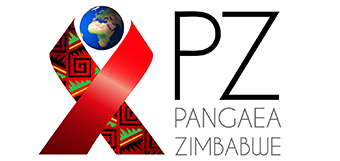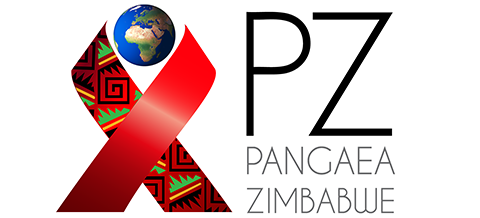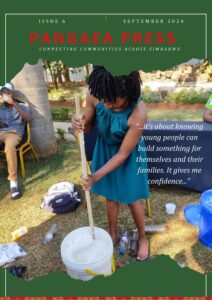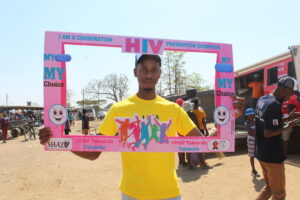Covid-19 vaccine confidence video resources
The following videos were developed by the Ministry of Health and Child Care (MoHCC) and PZAT to promote COVID-19 vaccination. Click the links below to download the videos.
- Are-vaccines-safe-Shona-1.mp4 (320 downloads)
- Are-vaccines-safe-English.mp4 (304 downloads)
- Dispelling-myths-and-misconceptions-on-COVID-19-vaccination.mp4 (609 downloads)
- Pregnant-and-Breastfeeding-People-and-COVID-19-vaccination.mp4 (499 downloads)
PrEP video resources
The following videos were developed by the Ministry of Health and Child Care (MoHCC) and PZAT to promote national PrEP uptake. Click the links below to download the videos.
PrEP Video – Shona Version (8MB)
PrEP Video – Ndebele Version (15MB)
Launch for life
This manual is to assist you in preparation for starting out on your own and for becoming self reliant. It is intended as a guide to give you information so you will be better able to succeed in your life. There is information on:
-
how to obtain important documents (where to go and what to do)
-
how to prepare for a job interview
-
how to manage a business
-
how to manage your personal finances
-
how to manage your business finances and more.
This manual does not contain all the information you need and we encourage you to seek further information that will help you to get a good start on life!
Click here to download (44 Kb)
Policy Brief
From Research to Reality. The need to expand sexual reproductive health options for adolescent girls. Tackling adolescent girls’ unmet need for contraception and HIV prevention requires clear and targeted policy and programming. This policy brief addresses key service and policy barriers and provides recommendations to overcome them. Easier access to contraception now will pave the way for emerging HIV prevention interventions for women in the near future.
Click here to download (501Kb)
OPTIONS AGYW Ambassador Training Manual
The AGYW Ambassador Training manual was developed to equip AGYW with the knowledge and skills to:
Identify how gender norms and inequalities contribute to AGYW’s vulnerability to HIV and violence against women and girls
– Educate their peers about HIV and AIDS, including how it is transmitted and prevented and why AGYW are vulnerable to HIV
– Support their peers who are experiencing violence by using active listening and by empowering them to access services
– Give peers detailed, accurate information about oral PrEP as part of combination HIV prevention and address peers’ questions and concerns
– Support their peers to make informed decisions, get access to oral PrEP, use it correctly, continue using it while they are vulnerable to HIV and tell others about their oral PrEP use
– Raise awareness and build community support for oral PrEP
– Identify barriers to oral PrEP use, and develop and implement advocacy strategies to reduce these barriers
– Ensure the confidentiality of their peers
– Set boundaries and practice self-care.

Progress on biomedical HIV prevention interventions for young women in Southern Africa: Giving women choice and options
The SHAZ! Project: Results from a Pilot Randomized Trial of a Structural Intervention to Prevent HIV among Adolescent Women in Zimbabwe
Adolescent females in Zimbabwe are at high risk for HIV acquisition. Shaping the Health of Adolescents in Zimbabwe (SHAZ!) was a randomized controlled trial of a combined intervention package including life skills and health education, vocational training, micro-grants, and social supports compared to life skills and health education alone.
Advancing HIV Prevention Research in Pregnant and Lactating Populations (PLP): Priority Advocacy Objectives and Next Steps
AVAC_PHASES_ThinkTank_ePoster_Final_.pdf (620 downloads)
COMPASS Africa MERL Handbook for Advocacy Champions
The handbook provides easy-to-read reference material for anyone conducting advocacy to enable them to monitor, evaluate and learn from their advocacy work. The content has been put together using insights from COMPASS Africa partners in Malawi, Tanzania, and Zimbabwe; who have participated in MERL training, webinars, and face-to-face engagements.
COMPASS-AFRICA-MERL-Handbook-For-Advocacy-Champions.pdf (360 downloads)
Syphilis self-testing to expand test uptake among men who have sex with men: a theoretically informed mixed methods study in Zimbabwe
Self-testing for STIs such as HIV and syphilis may empower sexual minorities and expand the uptake of STI testing. While much is known about HIV self-testing (HIVST), less is known about syphilis self-testing, particularly in low-income settings. The objective of this study is to determine context-specific facilitators and barriers for self-testing and to assess the usability of syphilis self-testing in Zimbabwe among men who have sex with men (MSM).
Syphilis-self-testing.pdf (1004 downloads)
Efficiency in PrEP Delivery: Estimating the Annual Costs of Oral PrEP in Zimbabwe
Although oral PrEP is highly effective at preventing HIV acquisition, optimizing continuation among beneficiaries is challenging in many settings. We estimated the costs of delivering oral PrEP to populations at risk of HIV in seven clinics in Zimbabwe. Full annual economic costs of oral PrEP initiations and continuation visits were estimated from the providers’ perspective for a six-clinic NGO network and one government SGBV clinic in Zimbabwe (January–December 2018).
Efficiency-in-PrEP-Delivery.pdf (749 downloads)
Test and Prevent: Evaluation of a Pilot Program Linking Clients With Negative HIV Test Results to Pre-exposure Prophylaxis in Zimbabwe
As HIV testing increases worldwide, programs are reaching individuals without HIV infection who are at risk of exposure and may be candidates for oral pre-exposure prophylaxis (PrEP). Although the linkage of individuals with HIV infection to treatment is a global priority (referred to as “test and treat”), less attention is given to individuals with negative HIV test results. We developed the “Test and Prevent” pilot program to intentionally link at-risk clients with negative HIV test results to PrEP services.
Test-and-Prevent.pdf (606 downloads)
Health care providers’ attitudes toward and experiences delivering oral PrEP to adolescent girls and young women in Kenya, South Africa, and Zimbabwe
In Kenya, South Africa, and Zimbabwe, oral pre-exposure prophylaxis (PrEP) is recommended for adolescent girls and young women (AGYW) at high risk of HIV. Health providers play a critical role in the uptake and effective use of sexual and reproductive health services; however, few published studies have explored providers’ attitudes toward and experiences delivering PrEP to AGYW.
Health-care-providers-attitudes.pdf (708 downloads)Optimizing responses to drug safety signals in pregnancy: The example of dolutegravir and neural tube defects
While there is an urgency to bring newer and more potent antiretroviral drugs developed in resource-rich settings to resource-limited settings as quickly as possible, evaluation of the safety of new drugs in pregnancy is often limited to small pharmacokinetic studies following drug approval.
Optimizing-responses-to-drug-safety-signals-in-pregnancy-the-example-of-dolutegravir-and-neural-tube-defects-1.pdf (737 downloads)
Approaches to accelerating the study of new antiretrovirals in pregnancy
Pregnant and breastfeeding women are generally excluded from pre-licensure trials of new agents and most new medications are approved for use in adult populations without dosing and safety data in pregnancy [1]. Multiple barriers to obtaining pregnancy pharmacokinetic (PK) and safety data have been identified, largely rooted in a historical approach focusing exclusively on protecting the foetus from harm.
Delayed completion of pre-clinical reproductive toxicology studies leads to the exclusion of pregnant women (or women who could become pregnant) from pre-licensure studies and as justification in pre-licensure trials for requiring contraception for women of reproductive potential and discontinuing study drug among women participants who become pregnant.
Accelerating investigation of new HIV drugs in pregnancy: advancing the research agenda from theory to action
Despite tremendous work by the research community in exploring effective strategies to prevent HIV vertical transmission,
historical approaches to clinical development of novel therapeutics for treatment and prevention of HIV have led to unacceptable delays of up to a decade after initial drug approval in the generation of data to support optimal antiretroviral (ARV) drug use in pregnancy [1].
Stated product formulation preferences for HIV pre-exposure prophylaxis among women in the VOICE-D (MTN-003D) study
The effectiveness of HIV pre-exposure prophylaxis (PrEP) requires consistent and correct product use, thus a deeper understanding of women’s stated product formulation preferences, and the correlates of those preferences, can help guide future research. VOICE-D (MTN-003D), a qualitative ancillary study conducted after the VOICE trial, retrospectively explored participants’ tablet and gel use, as well as their preferences for other potential PrEP product formulations.
Stated-product-formulation-preferences-for-HIV-pre‐exposure-prophylaxis-among-women-in-the-VOICE-D-MTN-003D-study-1.pdf (624 downloads)
Engaging the community of women living with HIV to tailor and accelerate ARV research for pregnant and breastfeeding women
Since the beginning of the HIV epidemic, community engagement and activism have played a critical role in shaping clinical research and drug development. Community engagement in research is a complex and interactive relationship between researchers, policymakers and the community. Such engagement has been acknowledged as a critical component of successful outcomes by key health agencies, including the World Health Organization (WHO).
Engaging-the-community-of-women-living-with-HIV-to-tailor-and-accelerate-ARV-research-for-pregnant-and-breastfeeding-women.pdf (744 downloads)
Potential end-user and community-level perspectives on new biomedical HIV prevention methods in Zimbabwe
Zimbabwe is considering adopting new biomedical HIV prevention methods to increase client choice: the dapivirine vaginal ring (PrEP ring or ring) and injectable cabotegravir for pre-exposure prophylaxis (CAB PrEP). We conducted stakeholder consultations with potential end users (Table 1) and community influencers (Table 2) to:
• Gain a better understanding of their needs and concerns about these methods
• Inform introduction and rollout efforts using lessons from experiences with oral
PrEP
Delivery of clinical HIV prevention, care, and treatment services for key populations through safe spaces in Harare, Zimbabwe
Key Populations (KP) bear a disproportionate burden of HIV in Zimbabwe. Compared to a prevalence of 12% among the general adult population in the country, HIV prevalence is 21.1%, 42.2% and 28% among men who have sex with men (MSM), sex workers and prisoners, respectively.
AIDS2022_Poster_SafeSpaces_Key_Populations_Harare_Zimbabwe-1.pdf (893 downloads)
Considerations for the delivery of new biomedical HIV prevention methods: Zimbabwe healthcare provider perspectives
Despite available prevention methods, including oral pre-exposure prophylaxis ( PrEP )., women in Zimbabwe continue to be disproportionately affected by HIV (0.54% incidence among women compared to 0.20% incidence among men, ZIMPHIA 2020) Expanded
method choice has the potential to increase the overall uptake of PrEP, especially among adolescent girls and young women. As Zimbabwe considers adopting emerging PrEP methods such as the dapivirine vaginal ring (PrEP ring or ring) and injectable cabotegravir for PrEP (CAB PrEP), effective service delivery strategies need to be considered.
Integrated community delivery model to improve PrEP uptake and continuation for AGYW in Mazowe district, Zimbabwe
The Ministry of Health and Child Care (MOHCC) has been offering oral pre exposure prophylaxis (PrEP) as part of combination HIV prevention in Zimbabwe since 2017. PrEP is effective in reducing the risk of HIV acquisition. The level of protection is directly linked to adherence to daily oral PrEP. Access to HIV prevention services, including PrEP, is a challenge for members in hard to reach rural communities and further compounded by COVID 19 travel restrictions.
AIDS2022_Poster_CommunityPrEP_Mazowe_Zimbabwe.pdf (909 downloads)
Engaging PrEP Champions to improve uptake and continuation on PrEP among AGYW in the DREAMS program in Matabeleland North Province, Zimbabwe
Daily oral pre exposure prophylaxis (PrEP) implemented as part of combination prevention by an individual can reduce the risk of HIV acquisition by 99%. The level of protection provided by PrEP depends on adherence and use of other preventive measures. Peer to peer models have been demonstrated to enhance uptake, continuation and adherence to HIV prevention, care and treatment services, including PrEP.
AIDS2022_Poster_PrEPChamptionsAGYW_Mat_North_Zimbabwe.pdf (807 downloads)
Facilitating Safe Disclosure of Key Population Identities to Optimize HIV Differentiated Service Delivery in Harare, Zimbabwe, 2022-2023
Key populations (KPs) include female sex workers (FSW), men who have sex with men (MSM), people who inject drugs (PWID), and transgender persons. More than half (55%) of all new HIV infections in 2022 occurred among KPs and their sexual partners (UNAIDS, 2019). Structural barriers including discrimination, stigmatization, and criminalization of KPs results in non-disclosure of KP status. This reduces the ability to deliver services tailored to KP needs. Pangea Zimbabwe, under the Zimbabwe Partnership to Accelerate AIDS Control (ZimPAAC) consortium, supported a KP Program in 21 public-sector HIV health facilities in Harare and conducted a KP reclassification exercise to identify KP status among recipients of care. The objective was to facilitate safe disclosure of KP status and optimize enrollment in differentiated service delivery (DSD) models.
IAS-2024-POSTER-THPEE527-Casper-Hera.pdf (161 downloads)
Integrated peer driven advocacy for HIV prevention in Tertiary Institutions
Adolescent girls and young women (AGYW) aged 15–24 years, experience higher HIV incidence (0.54%) compared to their male (0.20%) counterparts in Zimbabwe. Although these young people, particularly AGYW are at high risk of HIV, they have limited access to services and information. This has the potential to increase the number of new HIV cases given that tertiary institutions have a large pool of adolescents and young people at high risk of HIV, STIs and unintended pregnancy. To this end, Pangea Zimbabwe implemented a peer led intervention in seven tertiary institutions with the aim to expand access to HIV prevention options among AGYW in tertiary institutions.
AIDS-2024-Poster.pptx (165 downloads)
Private-public partnership supporting sexually exploited minors and young women selling sex to launch microenterprises: Lessons learned in DREAMS in Zimbabwe
Many adolescent girls and young women involved in transactional sex (referred to as young women selling sex, YWSS), have economic vulnerability emanating from dropping out of school, early marriages, and erratic economic opportunities. YWSS are often discriminated, stigmatized, and marginalized in their communities. The Determined, Resilient, Empowered, AIDS free, Mentored and Safe (DREAMS) program aims to reduce new HIV infections among sexually exploited minors (SEM) and YWSS aged 15 to 24 years. YWSS/SEM received need-based-integrated technical skills trainings to alleviate poverty which exposes them to sex work and HIV.
IAS-WEPEE599_Judith-Ncube-2024.pptx (301 downloads)
Evaluate and Elevate: Leveraging the CASPR Outcomes Assessment Tool (COAT) to Enhance Advocacy Impact
Advancing community-centered HIV prevention research relies on strong, evidence-based advocacy by coalitions and civil society representing community demands. It can be challenging to identify which strategies are successful amongst many stakeholders in a complex research and policy environment. An effective approach to assess intended and unintended outcomes and establish corrective actions to strengthen future advocacy work
is critical to evidence-based advocacy.
Pangaea Zimbabwe September 2024 Edition
“…it’s about knowing young people can build something for themselves and their families. It gives me confidence…”
September-Newsletter.pdf (58 downloads)
Pangaea Zimbabwe August 2024 Edition
“Young People, Bold Choices: Bringing SRH Services to Life!
PZ-August-Newsletter.pdf (145 downloads)
Pangaea Zimbabwe June- July 2024 Edition
“Young people need convenience—products that fit their lifestyle, easy to use, store, long-acting, and discreet”
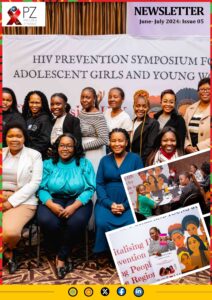
Pangaea-Zimbabwe-June-July-2024.pdf (322 downloads)
If, when and how to tell: a qualitative study of HIV disclosure among young women in Zimbabwe
© 2012 Reproductive Health Matters.
 Click here to download (657 Kb)
Click here to download (657 Kb)
Case Study: Identifying Best Practices in HIV Service Delivery
 Click here to download (2.17Mb)
Click here to download (2.17Mb)
Treatment Optimization Initiative Meeting III report
 Click here to download (877Kb)
Click here to download (877Kb)
Coalition to Accelerate and Support Prevention Research (CASPR) Report 2021
 PZAT_CASPR-Annual-Report.pdf (560 downloads)
PZAT_CASPR-Annual-Report.pdf (560 downloads)
Shaping the Health of Adolescents in Zimbabwe (SHAZ! Hub) Report 2021
 PZAT-SHAZ-HUB-Annual_2021.pdf (718 downloads)
PZAT-SHAZ-HUB-Annual_2021.pdf (718 downloads)
Wild4Life MEL Report 2021
 Wild4Life-MEL-Report-2021.pdf (750 downloads)
Wild4Life-MEL-Report-2021.pdf (750 downloads)
PZAT DREAMS COP20_Annual Progress Report
 PZAT-DREAMS-COP20_Annual-Progress-Report (549 downloads)
PZAT-DREAMS-COP20_Annual-Progress-Report (549 downloads)
